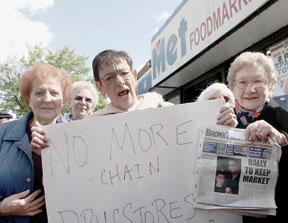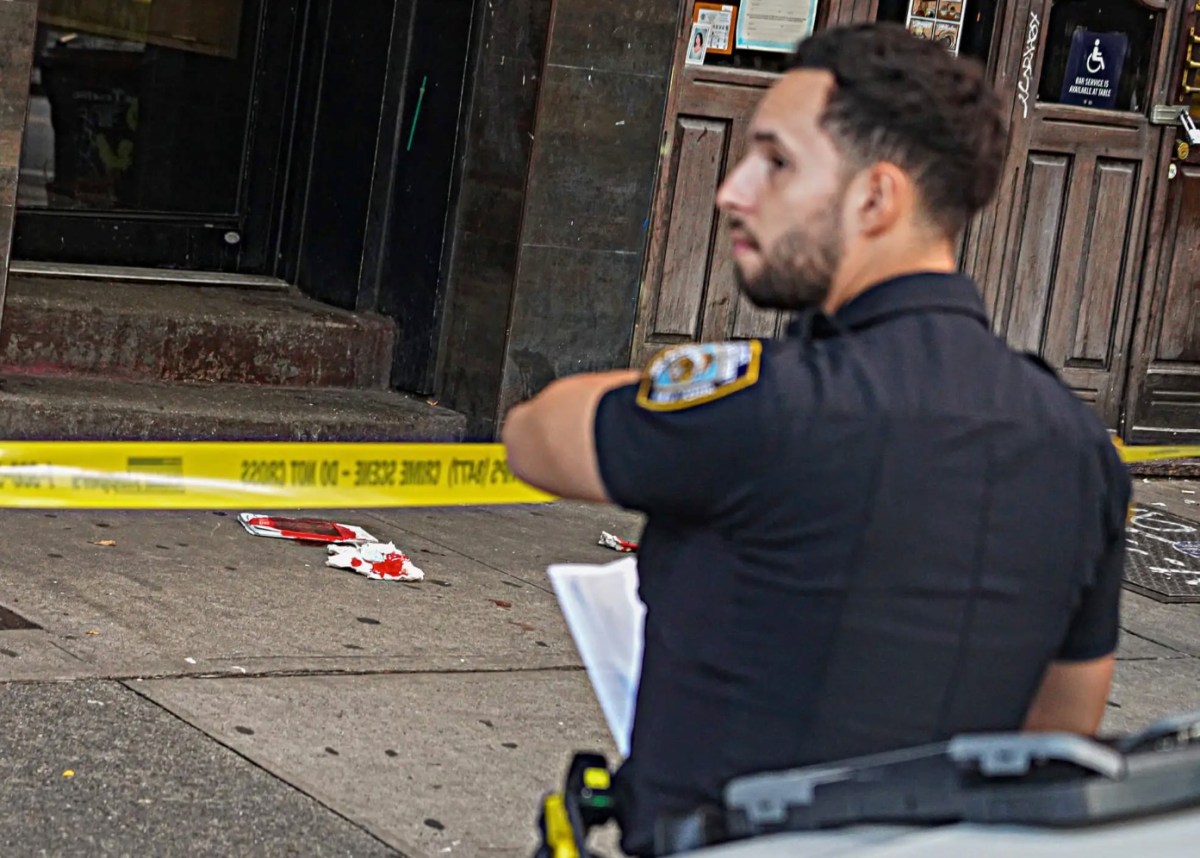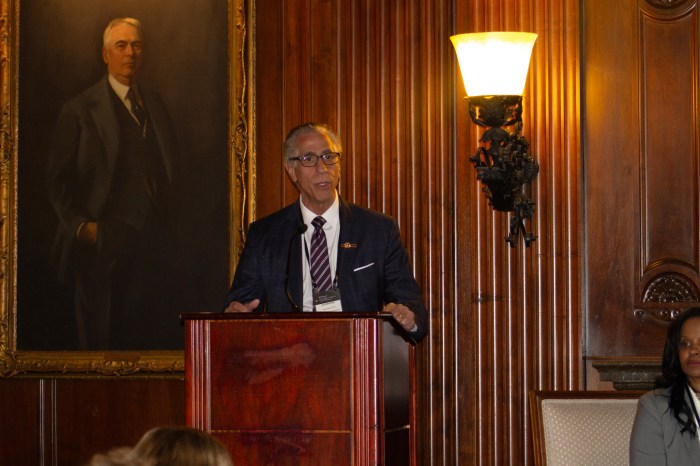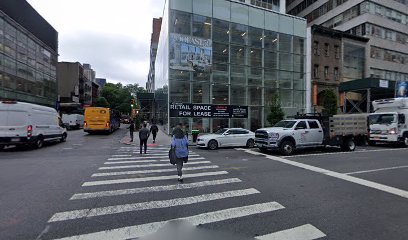“I’m 81. Where are we going to go? Where are we going to go,” 40-year neighborhood veteran Lina Tripodi questioned sadly as she balanced her weight against her wooden cane.
Tripodi was one of numerous local seniors shocked by the news of the pending store closure, with proposed plans for a Walgreens to take its place.
While Tripodi slowly meandered the crowd, a sense of lost hope in her eyes, others refused to accept defeat.
“We want the store and we’re going to keep it and that’s it,” Margaret Romandetto stated. Sadly, she doesn’t have another option.
Romandetto said her husband suffered a stroke some time ago and can’t risk a bus trip to get groceries.
“What are we supposed to do,” she questioned genuinely. “They don’t think of these things, they just think about the money.”
A drastic rent increase imposed by the building’s owner, Murray Appelbaum of Appelbaum Reality, is forcing the current storeowner to leave.
“The neighborhood’s been very good to him over the years and he needs to give back,” Councilman Jimmy Vacca said about Appelbaum, who has owned the property since 1960.
In addition to the unexpected closure, local residents are appalled at the retail space’s future.
“We don’t want a drug store. I won’t patronize the store, even if they’re giving things away,” Gloria Saplicki said as she held the arm of her 95-year-old mother Rose Polidoro, who’s lived in the neighborhood for 50 years and continues to depend on the store’s convenient delivery system.
“We really have to protect our seniors,” Sal Conforto said. “This is a vital lifeline for them to do their shopping.”
For the many neighborhood seniors who don’t drive, the nearest supermarket would be the A&J Food Market at 1000 Allerton Avenue.
“They’ll have to leave the safety of their neighborhood to go to another neighborhood they aren’t comfortable in,” Conforto continued.
Adding to unfamiliarity is the increased time and financial burden of the journey.
“It’s going to cost them more than $25 just to go shopping,” Romandetto said about a minimal cost of taking the bus to the supermarket, paying for a cab to transport the groceries home and finally tipping the driver to help bring the purchase in the house.
“They want to make thousands of dollars and they’re forgetting about us,” she further explained.
Vacca said this unfortunate scenario is becoming all too familiar. “This is déjà vu,” he said. “Wherever you see a supermarket closing, you see a chain drug store take over. How many sick people do we have? This is ridiculous.”
News of this proposed closure came after the Department of City Planning recently released an in-depth report explaining the “widespread shortage of supermarkets and neighborhood grocery stores in the city.”
According to the study, the Pelham Gardens/Allerton community already has a smaller supermarket-to-population ratio than the citywide average.
“The city needs to act promptly in order to develop a policy to preserve and promote supermarkets,” said Richard Lipsky, a representative of United Food and Commercial Workers International Union, who took part in the rally. “New York has already lost more than one-third of its markets and can’t afford to lose any more.”





















